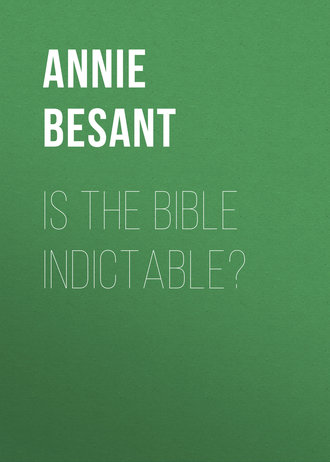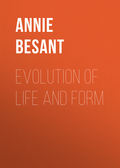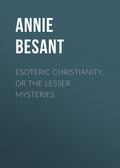
Annie Besant
Is the Bible Indictable?
The new ruling touches all the dramatists and writers that Lord Campbell had no idea of attacking; no one can doubt that many of Congreve's dramas are calculated to arouse sexual passion; these are sold at a very low price, and they have not even the defence of conveying any useful information; they come most distinctly within the ruling of the Lord Chief Justice; why are they to be permitted free circulation? Sterne, Fielding, Smollett, Swift, must all be flung into the dusthole after Congreve, Wycherley, Jonson; Dryden, of course, follows these without delay, and Spencer, with his “Faerie Queene,” is the next victim. Shakespeare can have no quarter shown him; not only are most gross passages scattered through his works, but the motive of some of them is directly calculated to arouse the passions; for how many youthful love fevers is not “Romeo and Juliet” answerable; what of “Cymbeline,” “Pericles,” or “Titus Andronicus”? Can “Venus and Adonis” tend to anything except to the rousing of passion? is “Lucrece” not obscene? Yet Macmillan's Globe Edition of Shakespeare is regarded as one of the most admirable publishing efforts made by that eminent firm to put English masterpieces in the hands of the poor. Coming to our time, what is to be done with Byron? “Don Juan” is surely calculated to corrupt, not to speak of other poems, such as “Parisina.” What of Shelley, with his “Cenci?” Swinburne, must of course, be burned at once. Every one of these great names is now branded as obscene, and, under the ruling of the Lord Chief Justice every one of them must be condemned. Suppose some one should follow Hetherington's example? Suppose that we should become the prosecutors instead of the prosecuted? Suppose that we should drag others to share our prison, and should bring the most honoured names of authors into the same condemnation that has struck us? Why should we show to others a consideration that has not been shown to us? If it is said that we should not strike, we answer; “Then leave us alone, and calculate the consequences before you touch us again.” The law has been declared by the Lord Chief Justice of England; why is not that law as binding on Macmillan as on us? The law has been narrowed in order to enmesh Freethought: its net will catch other fishes as well, or else break under the strain and let all go free. The Christians desire to make two laws, and show their hands too plainly: one law is to be strict, and is to apply wholly to Freethinkers; cheating Christians, who sell even Knowlton, are to be winked at by the authorities, and are to be let off scot free; but this is not all. Ritualists circulate a book beside which Knowlton is said to be purity itself, and the law does not touch them; no warrants are issued for their apprehension; no prosecution is paid for by a hidden enemy; no law-officer of the Crown is briefed against them. Why is this? because to attack Christians is to draw attention to the foundation of Christianity; because to attack the “Priest in Absolution” is to attack Moses. The Christian walls are made out of Bible-glass, and they fear to throw stones lest they should break their own house. Listen to Mr. Ridsdale, a brother of the Holy Cross: “I wonder,” he says, “why some one does not stand up in the House of Lords and bring a charge against the Bible (especially Leviticus) as an immoral book.” The Church Times, the organ of the Ritualists, has a letter which runs thus: “Suppose a patrician and a pontifex in old Rome had with care and deliberation extracted sentences from Holy Writ, separated them from their context, suppressed the general nature and character of the book, and then accused the bishop and his clergy of deliberately preparing an obscene book to contaminate the young (how readily he might have made such extracts!), what should we have said of such ruffians?” This, then, is the shield of the clergy; the Bible is itself so obscene that Christians fear to prosecute priests who circulate obscenity.
Does the Bible come within the ruling of the Lord Chief Justice as to obscene literature? Most decidedly it does, and if prosecuted as an obscene book, it must necessarily be condemned, if the law is justly administered. Every Christian ought therefore to range himself on our side, and demand a reversal of the present rule, for under it his own sacred book is branded as obscene, and may be prosecuted as such by any unbeliever.
First, the book is widely circulated at a low price. If the Bible were restricted in its circulation by being sold at 10s. 6d. or a guinea, it might escape being placed in the category of obscene literature under the present ruling. But no such defence can be pleaded for it. It is sold at 8d. a copy, printed on cheap paper, and strongly bound, for use in schools; it is given away by thousands among the “common people,” whose morals are now so carefully looked after in the matter of books; it is presented to little children of both sexes, and they are told to read it carefully. To such an extent is this carried, that some thousands of children assembled together were actually told by Lord Sandon, the Vice-President of the Committee of Council on Education, to read the Bible right through from beginning to end, and were bidden not to pick and choose. The element of price is clearly against the Bible if it be proved to have in it anything which is of a nature calculated to suggest impure thoughts.




